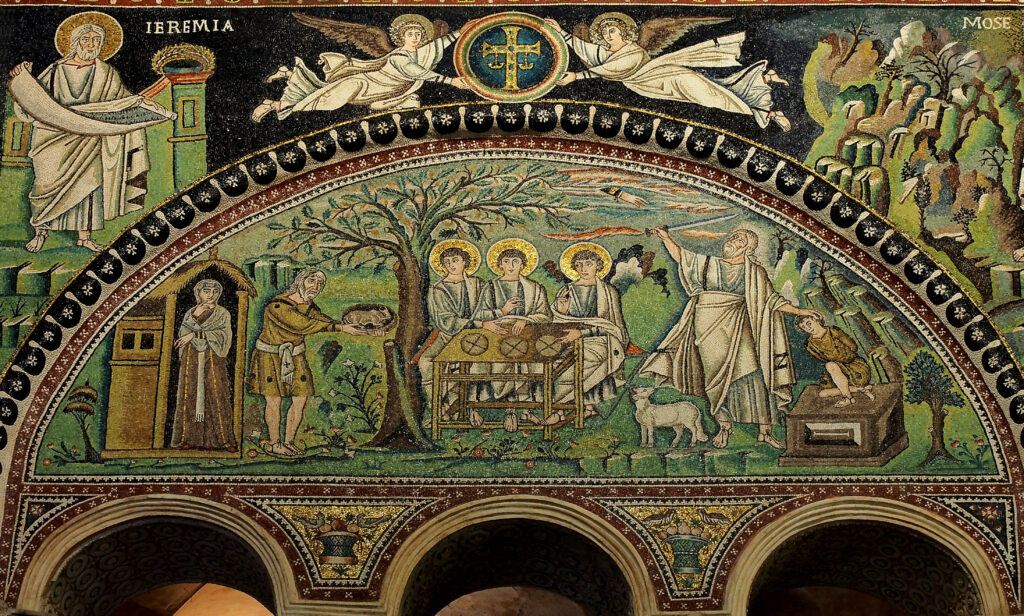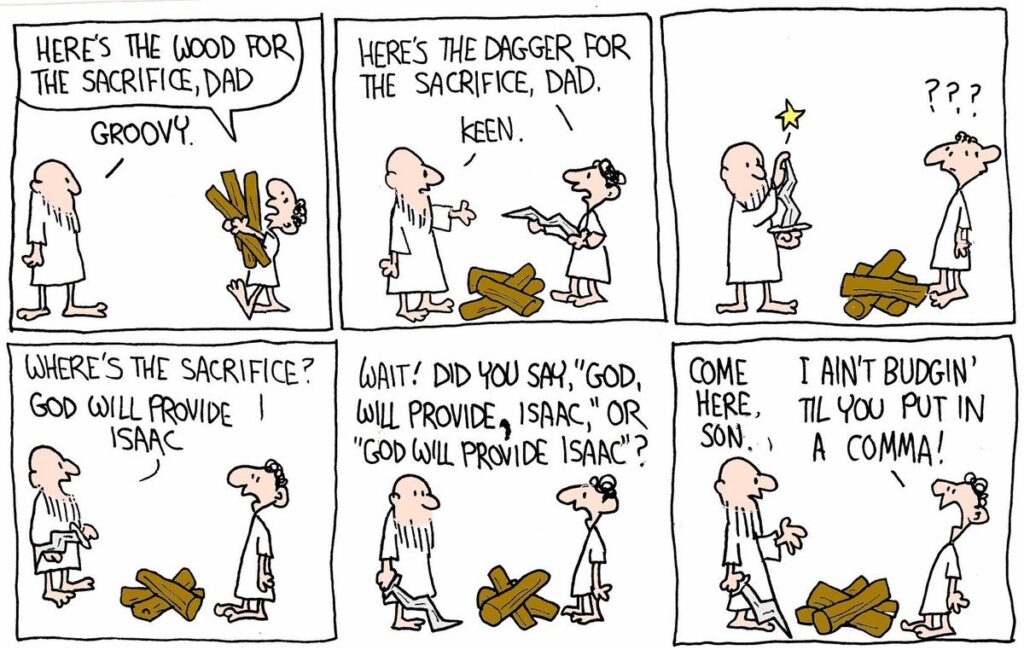Genesis 21:1-3; 22:1-14 God gives Abraham and Sarah a son in their old age. Abraham is told to sacrifice his son, but God provides the ram.

By Petar Milošević – Own work, CC BY-SA 4.0, https://commons.wikimedia.org/w/index.php?curid=41450781
I don’t think this is anyone’s favorite passage. It brings up far more questions than answers, and the ‘happy’ ending probably showed up on the 3500BC Jerry Springer show. Abraham and Sarah have received a blessing, promised in the words of a visitor, and now, God’s voice speaks again, and drives the action. It’s a message I don’t think any of us would want to hear.
Now Abraham becomes the speaker. He tells the servant to wait, for they will worship and return. As they prepare to worship, Isaac calls out to Abraham, his words and his father’s response echoing God’s call at the start of the passage, and Isaac wants to know where the lamb is. Abraham’s words are that God will provide.
Abraham ties Isaac down, takes the knife, and prepares to live out God’s word to him at the start of the passage. An angel of the Lord interrupts, and Abraham responds for a third time, “here I am.” And Abraham, or rather, Isaac, gets the good news that death, his death, is not required.
The words move the story. The word of God moves the story, Abraham’s response to God’s word moves the story, and the angel’s response to Abraham’s actions delivers the ending. What do we hear in the words? We hear hope, faith, death, life, sacrifice, and at the end, resolution and memory. How do our words move our faith stories? Who speaks, who says, “here am I,” who acts in accordance with another’s words, who speaks words of life, and who uses their words to make sure the story is not forgotten? How do we hold onto God’s words of promise when things get rough? How do we speak our words of faith in hard times? How do we use our words to mark the promises of our faith?

